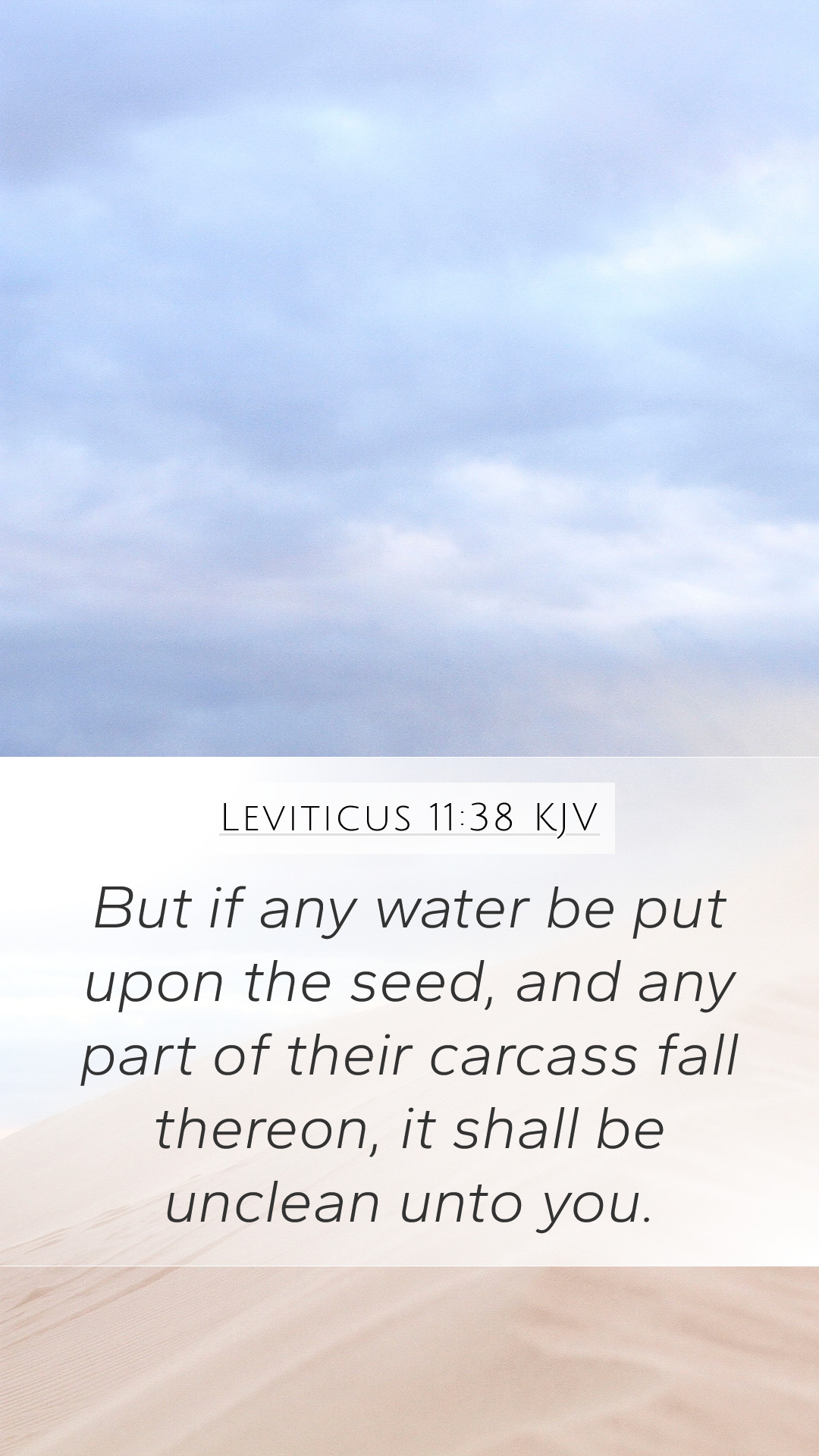Bible Verse Commentary on Leviticus 11:38
Understanding Scripture: Leviticus 11:38 states, "But if water is put on the seed, and any part of the carcass falls upon it, it is unclean to you." This verse is part of a larger section detailing the laws of clean and unclean animals, as well as the laws pertaining to purity in Israelite society.
Context and Significance
This passage emphasizes the holiness and purity required of the people of Israel. It synthesizes themes of cleanliness associated with various aspects of life, from dietary restrictions to ceremonial practices. The underlying principle is the need for the Israelites to remain distinct from the surrounding nations by adhering to these divine ordinances.
Insights from Commentaries
- Matthew Henry: Henry emphasizes that the laws regarding clean and unclean animals not only served a practical purpose but were also symbolic of spiritual truths. The mention of water suggests that while one might engage in cleansing, contamination can still occur from negligence regarding what touches the water used for cleaning.
- Albert Barnes: Barnes notes that this law serves to illustrate the seriousness of maintaining purity. He implies that the presence of a dead animal in any capacity may render the intended purification ineffective, which in turn represents the nature of sin and how it can corrupt that which is meant to be pure.
- Adam Clarke: Clarke adds historical context, explaining that such laws were part of the broader covenant between God and Israel. His insights draw attention to how these purity laws were a means for the Israelites to express their devotion and obedience to God, distinguishing them from other nations.
Spiritual Lessons
The implications of this verse extend to a broader spiritual understanding that purity is not merely about external actions but also about internal motivations. As modern readers engage with this scripture, it prompts reflection on:
- How we can maintain spiritual cleanliness in our lives.
- The importance of vigilance in protecting what we consider sacred.
- Recognizing that contamination can come from seemingly innocuous sources, requiring us to be discerning.
Applications to Daily Life
Applying lessons from Leviticus 11:38 to daily life involves:
- Self-examination: Reflect on areas of life where external influences might compromise personal beliefs or practices.
- Community Practices: Encourage purity within community or group settings and hold discussions in Bible study groups that address contemporary application of scriptural cleanliness.
- Accountability: Establishing accountability in Bible study lessons and groups can help maintain focus on spiritual growth and purity.
Related Bible Verses
This verse connects to several other scriptures that address themes of purity and holiness:
- Leviticus 11:4-5: Discusses specific clean and unclean animals.
- 1 Peter 1:16: "Be holy, for I am holy," reinforcing the call to purity.
- Hebrews 12:14: "Pursue peace with all people, and holiness, without which no one will see the Lord," highlighting the importance of holiness.
Conclusion
Understanding Leviticus 11:38 through these various lenses enriches our comprehension of Biblical exegesis, offering insights into how God's holiness can be mirrored in our lives today. This scripture analysis encourages an application of its principles, permitting a deeper engagement with the text and enhancing our Bible study resources.


